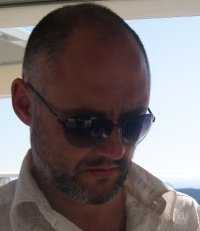Jozef Kapustka
| Józef Kapustka | |
|---|---|
 | |
| Background information | |
| Born |
1969 (age 45–46) Tarnów, Poland |
| Genres | Classical |
| Instruments | Piano |
| Years active | 1987–present |
| Labels | Dux |
| Website |
www |
Józef Kapustka (Tarnów, 1969) is a Polish classical pianist. He currently lives in Paris, France.
Biography and schooling
Jozef Kapustka was born in 1969. He began receiving early musical tuition from local instructor Danuta Cieślik at the age of 3. He then briefly studied at the State Higher Academy of Music in Kraków with Ewa Bukojemska. Having graduated from The Juilliard School in New York (Bachelor of Music degree, 1992; piano with Josef Raieff, then Jerome Lowenthal and chamber music with Joseph Fuchs), he moved on to obtain a Postgraduate Advanced Studies Diploma specializing in piano performance from the Royal Academy of Music in London (1997), with Martin Roscoe. He also worked with Dimitri Bashkirov (masterclasses held under auspices of the Queen Sofía College of Music in Spain)[1] and Vera Gornostaeva in Paris and Moscow.[2] Being an alumnus of the Music Academy of the West in Santa Barbara, 1991, he holds a Diplome superieur de la langue et civilization francaise from Paris Sorbonne University (1994). In 1994 he received a Grand Prix of the Conservatoire International de Musique de Paris.[3] He was nominated for the Molière award in 2010 (Best musical play: Diva à Sarcelles, written and directed by Virginie Lemoine).[4]
Performances
Kapustka has performed in Europe (2008 Europe's Day recital at Le Havre, France; recitals for the 2010 Chopin Year celebrations in France, 2011 Liszt Bicentenary concerts in Great Britain); USA - Lincoln Center appearances 1989-1992, Juilliard IBM concert series, Kosciuszko Foundation-Hunter College Music series broadcast live on WQXR New York classical radio, Carnegie Recital Hall 1997, United Nations on invitation from the Russian Permanent Mission 2004.[5] In 2010 he initiated a Bach in Rio project, playing and recording selected Bach keyboard concerti with the Orquestra de Cordas da Grota in Rio de Janeiro, Brazil.[6]
Discography
References
[10] [11] [12] [13] [14] [15] [16] [17]
- ↑ "Así, durante estas dos décadas han pasado por ella pianistas internacionales como Stanislav Ioudenitch, Jozef Kapustka, Eldar Nebolsi, Denis Kozhukhin, Arcadi Volodos; y los españoles Claudio Martínez Mehner (que a su vez ha sido profesor de Judith Jáuregui) o Luis Fernando Pérez
- ↑ "Jozef Kapustka – Free listening, concerts, stats, & pictures at". Last.fm. 2013-01-15. Retrieved 2013-10-14.
- ↑ "About Jozef Kapustka". Bachtrack.com. Retrieved 2013-10-14.
- ↑ London Royal Academy of Music official website
- ↑ "Bach-Kapustka: Piano Transcriptions of Bach's Works - Works". Bach-cantatas.com. 2010-11-09. Retrieved 2013-10-14.
- ↑ New York Juilliard School official website
- ↑ Luc Nevers " Rarétes à découvrir - Non curieux s'abstenir! " PIANISTE revue (France)
- ↑ Roger Thomas " Contemporary Music on CD - New Listening 21 February 2014, p.20
- ↑
- ↑ "Jozef Kapustka – Free listening, concerts, stats, & pictures at". Last.fm. 2013-01-15. Retrieved 2013-10-14.
- ↑ "About Jozef Kapustka". Bachtrack.com. Retrieved 2013-10-14.
- ↑ London Royal Academy of Music official website
- ↑ "Bach-Kapustka: Piano Transcriptions of Bach's Works - Works". Bach-cantatas.com. 2010-11-09. Retrieved 2013-10-14.
- ↑ New York Juilliard School official website
- ↑ Luc Nevers " Rarétes à découvrir - Non curieux s'abstenir! " PIANISTE revue (France) Le santour persan, (...) le tombak (...) s'associent au piano pour créer une série d'improvisations. Elles réunissent, dans des harmonies inextricables, les traditions et cultures orientales, perses, arabes et occidentales. On songe parfois aux musiques hypnotiques de Gurdjieff et de Hartmann (...) Inspirateur de ce programme, Jozef Kapustka, fait judicieusement alterner la prima voce entre tel ou tel instrument (...) D'autres caractéristiques encore plus étonnantes surgissent de cette musique (lire le livret). Une découverte intéressante.
- ↑ Roger Thomas " Contemporary Music on CD - New Listening 21 February 2014, p.20 "There seems to be a general movement on both sides to try and salvage, preserve and develop the musical culture of the region at a time when war and political strife mitigate against such concerns. Jozef Kapustka’s Improvisations with Bashir, which sets Kapustka’s piano alongside the santur (a hammered dulcimer) and the tonbak (one of the splendidly onomatopoeic names given to the double-pitched hand drum common throughout the region)before closing with an extensive solo piano workout, is a fine example of this, its slowly developing, restrained extemporizations building sonic structures that seem to shimmer like desert mirages."
- ↑ Mikołaj Szykor Józef Kapustka:Improvisations with Bashir Nowa płyta Józefa Kapustki (wyd. DUX), jest nagraniem, które mnie osobiście zaskoczyło… choć może lepszym słowem będzie zafascynowało… i to od pierwszych dźwięków. Mało spotykamy dziś takich nagrań… nagrań bez dwóch zdań natchnionych, metafizycznych i… intymnych?(...)Słuchając tej płyty, otwiera się kilka możliwości odniesień muzycznych… wspomniany już Możdżer (zwłaszcza z tria z Fresco i Danielssonem), może Keith Jarrett, Tord Gustavsen, ale i Bobo Stenson. Te wszystkie inspiracje według mnie słychać, jednakże w Improvisations with Bashir jest również sporo muzycznej indywidualności… i świeżych pomysłów improwizatorskich… całość jest intrygująca…
External links
- Official website
- Biography from www.concerts.fr
- Biography from www.theatreonline.com
- on the Polish Music Information Center page
- on the Polish Cultural Promotion Center page
- interview with Lucy Nixon for the RAM on-line
- Juilliard notable alumni on Manhattan.org page
- on the Polish Cultural Institute in London page
- on the Polish Cultural Institute in Paris page